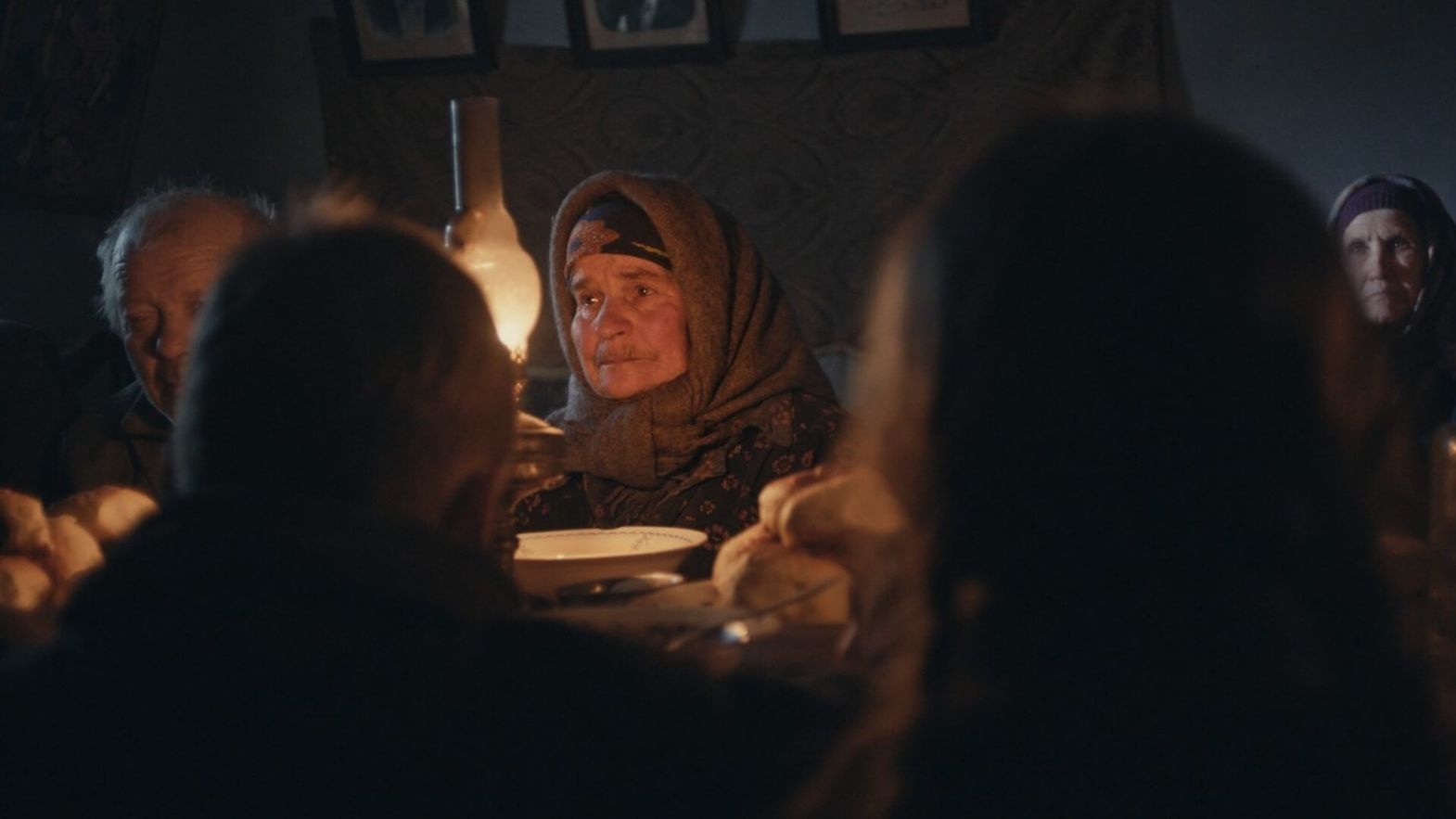 © Andrii Lysetskyi
© Andrii Lysetskyi
For her new feature film, Maryn Vroda chose to come back to her country, and face a story of loss, separation and failed communication. Set in a post-soviet Ukraine, Stepne is a family drama with some surprising twists. Here’s how the director presented to Locarno Daily her new movie.
Which is the most challenging part of shooting a movie like Stepne?
I always feel a lot of pressure when I have many actors in the scene. Some scenes had different challenges, like the one of the meeting or others that were more intimate. The goodbye scene for example was totally different in the script, we thought that it would have been more effective if the house was empty, and everyone was instead waiting for Anatoliy in the yard. That’s the spirit I wanted for this movie, the freedom to discover what the set was giving to all of us. The goodbye and the funeral sequences were the most important in order to obtain the real mood of the story. Once I shot them and I felt they worked the way I wanted, I knew I had the film.
There is a sequence which is clearly lighter, almost comic. How did you work on it?
I didn’t need to actually add any spice to that scene, it’s real! The point is that the reality in Ukraine sometimes is surreal, maybe even grotesque. The absurdity of the businessman is something that you can see very often in these kinds of situation. Even the setting was incredible, this old building that once was a castle and today contains an underground market. Incredible, it looks like a hellish place. Mixing drama and comedy wasn’t an easy task at all, I didn’t know if it was going to work or not and I am still surprised the way it came out. The biggest risk is that I wanted to work with professional actors but also nonprofessional. The actors have a strong background, and I was very interested to see if I could make that work with the documentary style I wanted for the movie. I am impressed the way it matched in the end.
What would you like the audience will take away from watching Stepne?
Even if on the surface it seems a story of a farewell, I think it is about love and strong bounds. Even death is not necessarily portrayed in a sad way, it’s part of life. I wanted to show the warmth of the people coming to say goodbye to the old woman, testifying that they shared a lot with her, which means that is impossible for her to completely disappear. It is on the other hand also a movie that talks about heritage, what my generation acquired from the older one which had a lot of issues to share its story. Through Stepne I feel I tried to discover more about my country and the people who lived before me.
How much of yourself then did you put into this story of family and generations struggling to know each other?
There is definitely a connection. I tried to criticize some social issues in my country. I struggled a lot to find a connection with my family: my grandfather didn’t talk at all, my father was very silent, and didn’t share his story. My generation wants to feel they belong to this country, they own a heritage that in some way is denied by the elders. Anatoly is not a fighter, he doesn’t question too much what’s going on where he was born and grew up. He acts in another way, looking for some kind of human connection. He wants to survive in this complicated world.
Adriano Ercolani